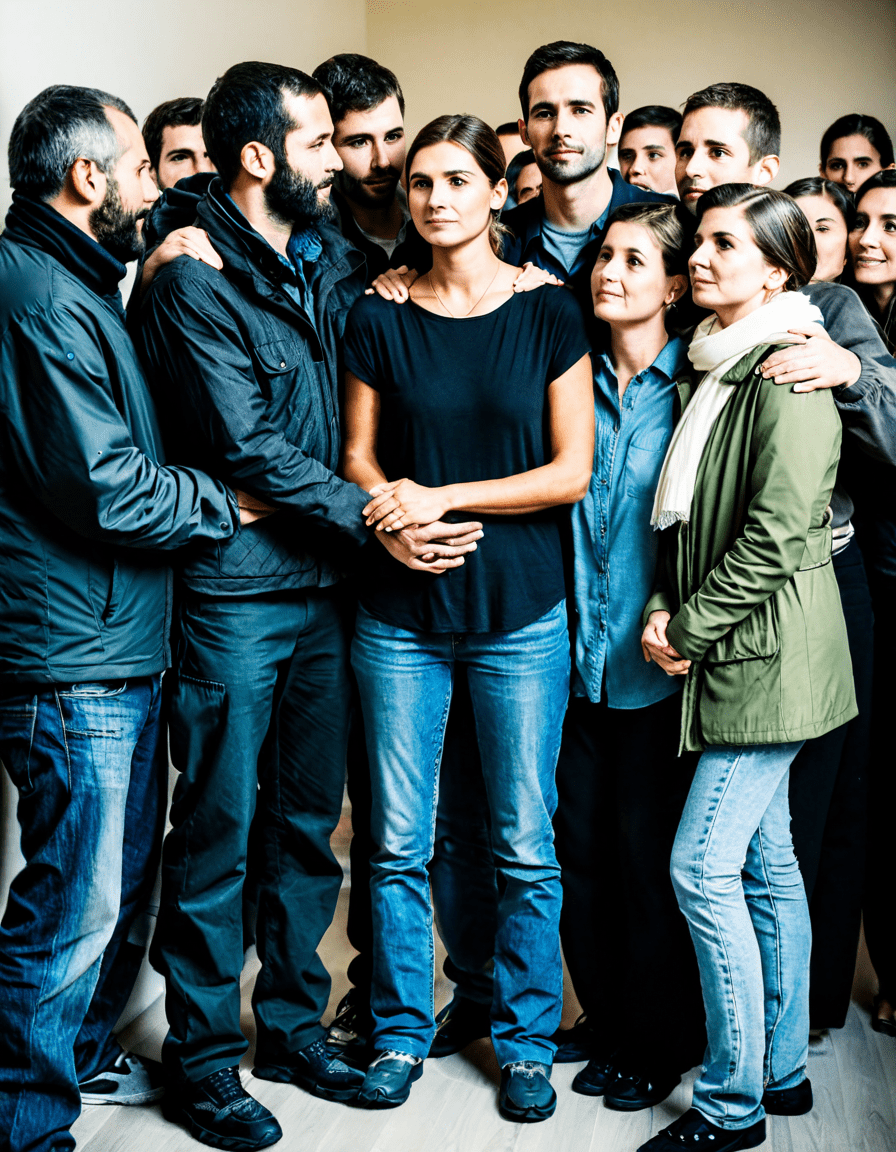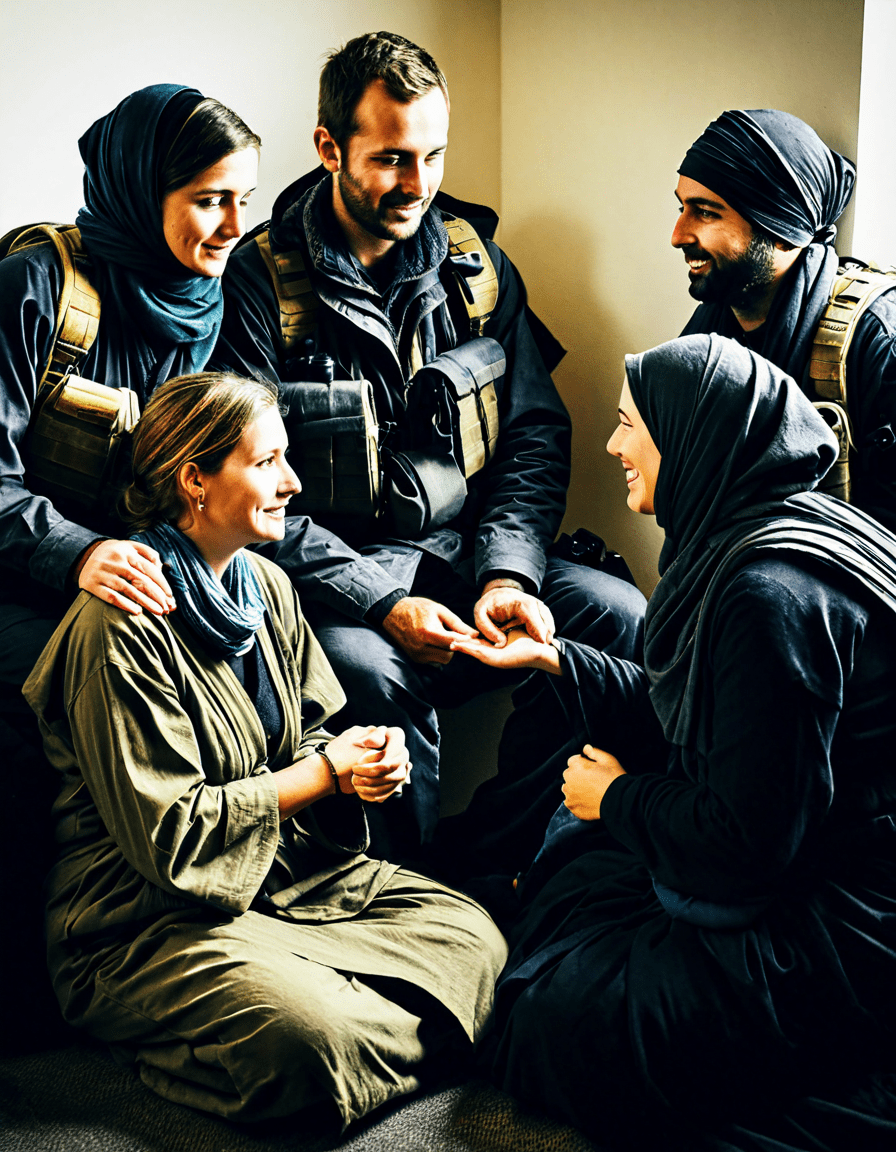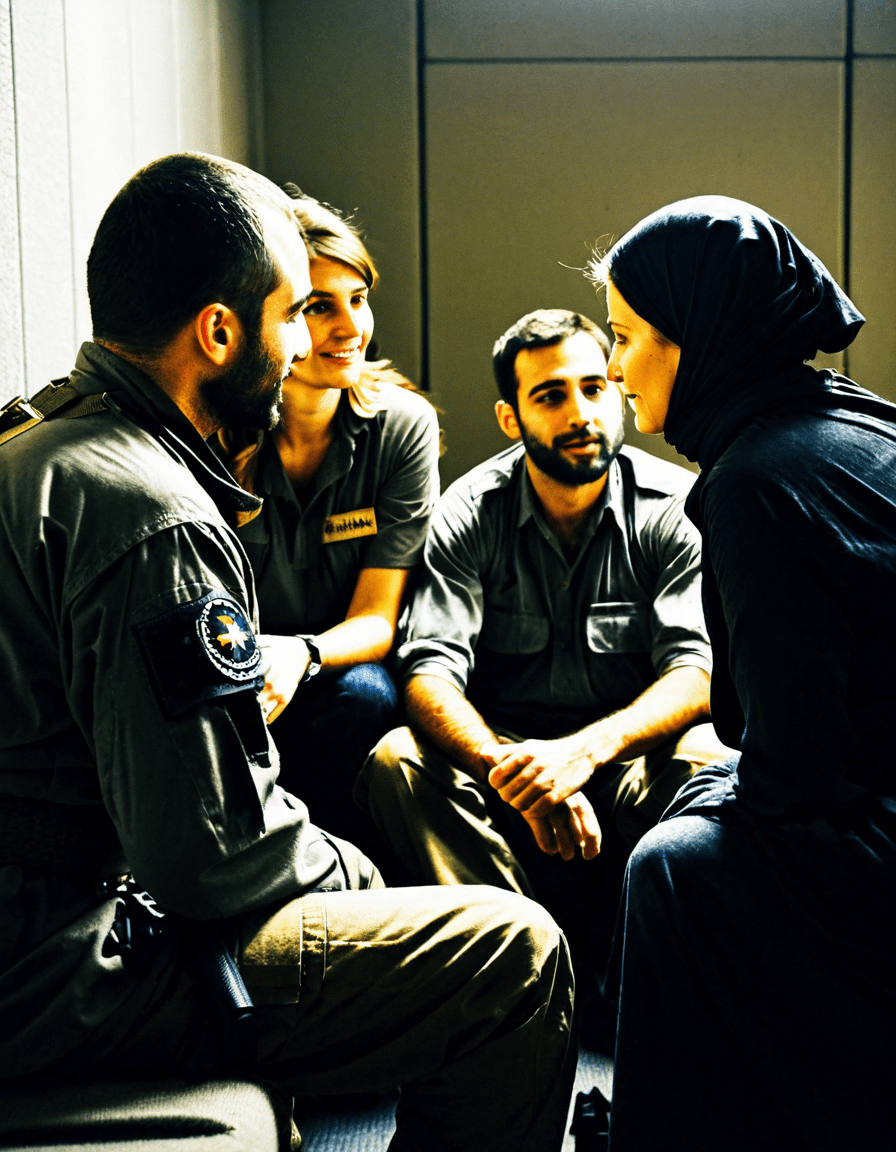Living through the harrowing experience of becoming hostages is unimaginable for many. The psychological impact can be deep, leaving scars that might fade but rarely disappear. Yet, some individuals emerge from these horrific situations not just surviving but thriving, turning their trauma into vehicles for change and advocacy. Their stories unveil how courage and resilience can make a profound impact, illuminating the potential for transformation even in life’s darkest moments.
The Journey of Hostages: A Story of Transformation
Being held against one’s will can create a profound sense of helplessness. However, many who endure these traumatic experiences refuse to be defined by them. Instead, they blaze a path toward empowerment and healing. Their transformations serve not only as personal journeys but also as compelling narratives that inspire hope around the globe.
Hostages often encounter untold struggles during their captivity, from dehumanizing insults to manipulation and emotional abuse. However, their determination to overcome these experiences often fuels their desire to advocate for change. By focusing on their journeys, we can understand the true resilience of the human spirit and how it can catalyze societal transformation.

Seven Remarkable Stories of Hostages Who Redefined Their Lives
1. Terry Anderson: From Captivity to Advocacy
Terry Anderson spent nearly seven years as a hostage in Lebanon during the turbulent 1980s. His ordeal was filled with fear and uncertainty, but upon his release, Anderson didn’t succumb to bitterness. Instead, he became a passionate advocate for journalistic freedom and human rights, spotlighting the necessity of speaking out against tyranny. His story teaches us that the resilience born from trauma can lead to impactful activism.
2. Jill Carroll: Turning Pain into Purpose
American journalist Jill Carroll’s terrifying experience of being taken hostage in Iraq in 2006 left her with physical and emotional scars. Yet, after her escape, Carroll channeled her pain into a mission for peace, promoting dialogue between different cultures. Her relentless advocacy highlights how one individual’s tragic experience can serve as a catalyst for cooperation and understanding in a divided world.
3. Ingrid Betancourt: A Political Phoenix
Ingrid Betancourt, a former Colombian senator, was abducted by FARC rebels in 2002 and held captive for over six years. Betancourt’s journey didn’t end with her rescue; she transformed into a dynamic political figure advocating against violence and kidnapping in Colombia. Her courage in addressing social injustices proves that survival can lead to tireless advocacy and meaningful reform.
4. Desmond Tutu: Advocacy Amidst Insulting Injustice
While not a hostage in the conventional sense, Archbishop Desmond Tutu faced profound oppression while fighting against apartheid in South Africa. Despite the insults and dehumanization he experienced, Tutu persisted with grace and resilience. His transformation from victim to moral leader exemplifies how the struggle against systemic injustice can inspire remarkable societal change.
5. Jennifer McKinney: A Life Reclaimed
Jennifer McKinney’s battle wasn’t one of political imprisonment but rather an emotional captivity inflicted by domestic violence. Once she escaped from her oppressor, McKinney leveraged her experiences into powerful storytelling through her blog and social media. Her openness about her struggles dares to shed light on domestic captivity, showing how individual narratives of recovery can motivate others to reclaim their lives.
6. Spanish Missionary’s Resilience
In 2018, Spanish priest Antonio Arregi was kidnapped in the Philippines. Upon gaining his freedom, he devoted his life to fostering peace in conflict-ridden areas. His commitment reflects how one’s traumatic experiences can transform into a resolve to bring healing and compassion to others, proving that hope can flourish even after the deepest trials.
7. Michael Scott: Turning Hostage Experiences into Healing
Michael Scott, held captive while working in a conflict zone, faced unimaginable challenges. Once freed, he redirected his path towards aiding others, exploring trauma recovery and mental health. His journey of converting personal suffering into support for fellow survivors illustrates how adversity can foster a lifetime commitment to healing and compassion.
The Ripple Effect of Hostage Experiences
These stories resonate beyond individual narratives; they signify the broader impact of resilience in society. Rather than seeing themselves merely as victims, these hostages embraced a heightened sense of purpose. Their tales often echo hardships faced during their captivity, driving them to advocate for a world devoid of similar trauma.
Their journeys epitomize the power of solidarity in movements that aim to protect the vulnerable. By amplifying their voices, these individuals encourage a cultural conversation on courage, hope, and the potential for recovery in a world that can, at times, feel overwhelmingly dark.

Resilience Beyond Trauma
The remarkable journeys of these individuals show that even amidst great trials, hope can shine through. Transforming from victims to advocates isn’t just a testament to personal triumph; it conveys a broader message that courage can persevere even in the face of adversity. As they continue to inspire change, these hostages remind us that the narratives we create can drive significant healing and transformation.
Indeed, human resilience isn’t just a flashy idea tossed around in social discussions; it’s a fundamental thread woven into our global fabric. The courage displayed by those who refuse to be defined by their trauma is a powerful reminder that our stories can push society toward a brighter, more understanding future. When we turn our struggles into fuel for advocacy, we honor not just ourselves but everyone who has felt the cold grip of hopelessness. And in doing so, we can inspire change that reverberates far beyond our own lives.
Hostages: Stories of Transformation and Courage
Uncommon Heroes
Did you know that some hostages have turned their harrowing experiences into incredible sources of inspiration? For instance, David Tepper, despite facing his own set of challenges, emerged stronger and has become a notable figure in philanthropy. It’s remarkable how one’s adversity can light the spark for change, just like in many movies depicting love and resilience, often found in films like Thinking Out Loud. These narratives resonate, showing that even the toughest situations can redirect life’s path.
Life Beyond Fear
After enduring top-notch horror, like those infamous Atrocities that test the very fabric of human love and strength, many hostages have risen to the occasion with extraordinary spirit. Take Love Quinn, a character with a gripping arc that highlights bold decisions in the face of overwhelming odds. This artistic representation parallels real-life stories, where individuals, though held captive, have found ways to break free from fear. Similarly, hostages often have to strategize a path to personal growth, much like the dynamic exploration in Berserk Arc 1, where fighting against overwhelming circumstances is pivotal.
Resilience in Darkness
Feeling like you’re stuck in the dark can be suffocating, but hostages have a knack for finding their way out, tapping into hidden reserves of bravery. Take the tale of Rocky Barker, who transformed his ordeal into a vital lesson on survival. Such stories serve as not just cautionary tales, but inspiring examples of life lived beyond danger. Whether you’re cosying up with a binge-watch of Nights or diving into real-life drama, there’s a shared thread of courage that links us all. Even Xavier Musks ventures remind us that the fight for change often begins with the challenges we face, proving that from adversity sprouts the potential for remarkable action.







